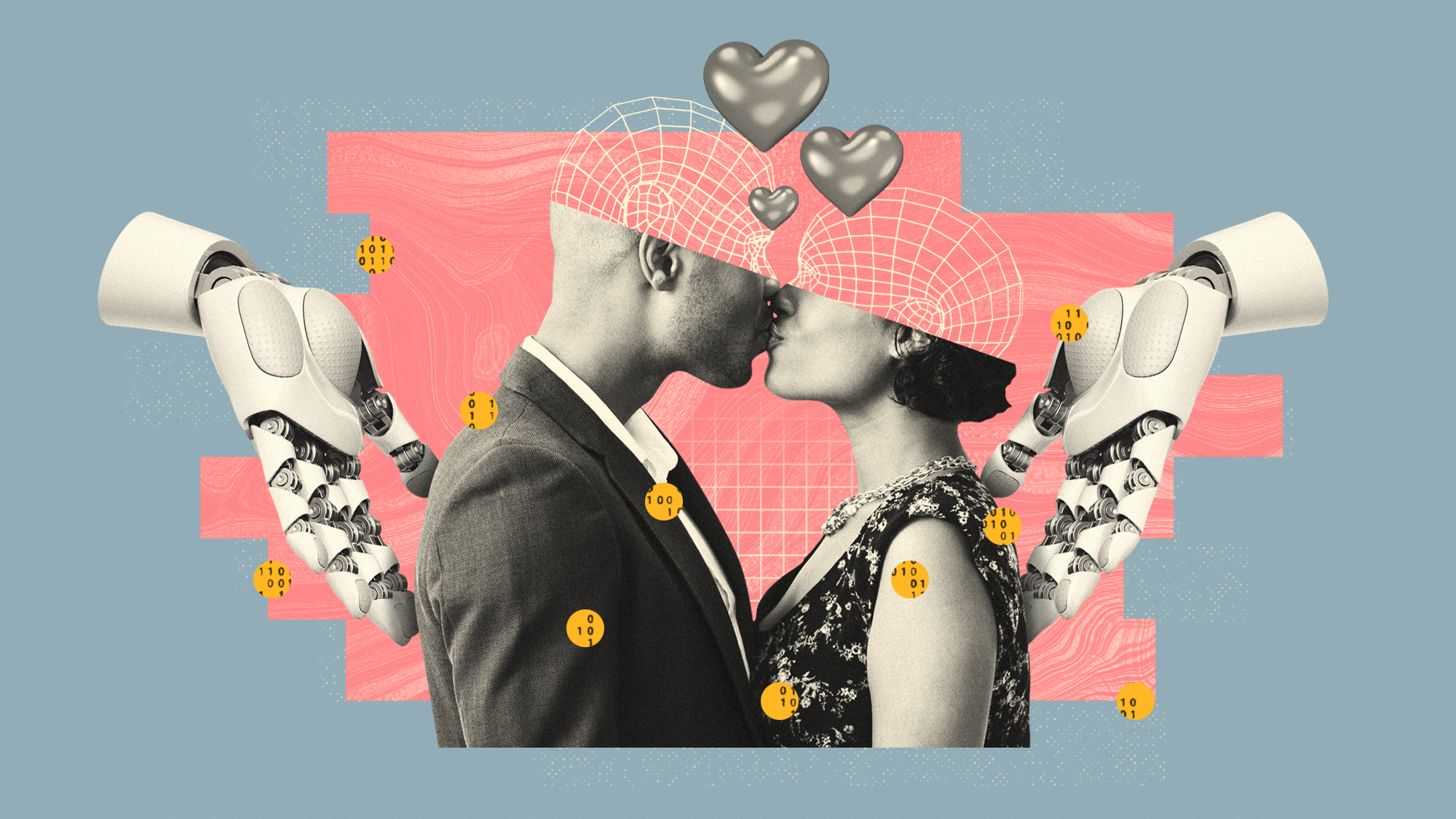Decline of dating apps: will AI be our knight in shining armour?
New tech features have raised concerns about privacy and manipulation

A free daily email with the biggest news stories of the day – and the best features from TheWeek.com
You are now subscribed
Your newsletter sign-up was successful
As lonely hearts have begun to call time on dating apps, artificial intelligence has arrived to try to woo them back.
From virtual 'wingmen' to 'baldness predictors' and tools that choose your profile photo for you, AI is being used as a 21st-century matchmaker, but will it halt the exodus or make the experience even less enjoyable?
Natural bedfellows
"More and more users seem to have fallen out of love with dating apps," said NSS Magazine, with Ofcom finding an almost 16% decrease in the usage of the 10 most popular dating apps between 2023 and 2024.
The Week
Escape your echo chamber. Get the facts behind the news, plus analysis from multiple perspectives.

Sign up for The Week's Free Newsletters
From our morning news briefing to a weekly Good News Newsletter, get the best of The Week delivered directly to your inbox.
From our morning news briefing to a weekly Good News Newsletter, get the best of The Week delivered directly to your inbox.
A new study of 1,500 singles found that 76% now prefer early face-to-face meetings rather than protracted online chats, with many "harking back" to traditional dating methods, said London's The Standard.
So some app developers are calling in the bots to try to turn around their fortunes. AI and dating have become "natural bedfellows" and "they're tucked in, comfortable, and leaving crumbs in the sheets".
Baldness predictor
AI has been part of online dating "for longer than you've probably even realised"; for instance, on Hinge, an AI-informed selection has offered users the most "relevant" profiles.
But AI has now got its feet under the table. Bumble has new features that weed out spam and fake accounts and find and blur lewd images, which it says blocked more than 2.2 million spam, scam and inauthentic profiles in 2024. Tinder and Hinge have similar features to detect harmful or illegal behaviour on their respective apps.
A free daily email with the biggest news stories of the day – and the best features from TheWeek.com
The Rizz app offers to help users by suggesting responses to conversations on existing dating platforms, and a recommendation platform called Pookie Tools includes functions like a "baldness predictor".
But Tinder's Photo Selector tool, which requires partial or full access to a user's camera library to pick out the "best" photos, has proven controversial, and the Wingman tool on the gay dating app Grindr is already "entirely redundant", said The Standard.
In another divisive development, AI will conduct a voice interview with Tinder users to understand what they are looking for and suggest which messages to send to matches based on shared interests.
More burdensome
But "one might wonder" whether users will want AI to "interrogate them" and whether this "will actually lighten the experience" or simply "make it more burdensome", said NSS Magazine.
Anastasiia Babash, a member of Ethical Dating Online, said "there's a risk that users relying on AI for their love life" may "lose the ability to hold real and spontaneous conversations", making it harder to "build authentic connections".
AI's march into dating apps poses a particular risk for "vulnerable young people", said Luke Brunning in New Scientist. "Widespread use of AI to write dating bios and prompt conversations" could make manipulation "easier than ever", as well as "worsening existing social biases, and leading to harmful expectations about body image".
Chas Newkey-Burden has been part of The Week Digital team for more than a decade and a journalist for 25 years, starting out on the irreverent football weekly 90 Minutes, before moving to lifestyle magazines Loaded and Attitude. He was a columnist for The Big Issue and landed a world exclusive with David Beckham that became the weekly magazine’s bestselling issue. He now writes regularly for The Guardian, The Telegraph, The Independent, Metro, FourFourTwo and the i new site. He is also the author of a number of non-fiction books.